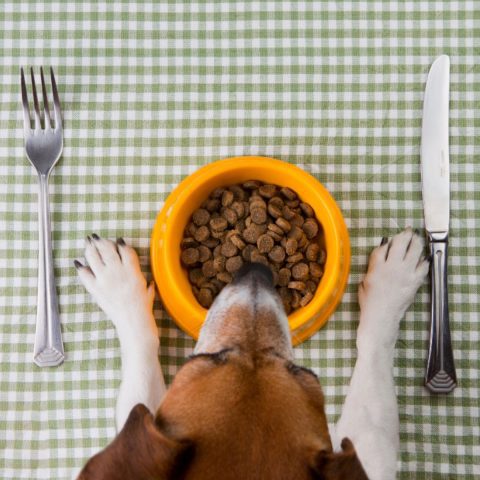As you explore the world of grain-free dog diets, you’re likely to encounter a plethora of options, each touting its own unique benefits. But what’s really behind the marketing hype? When you peel back the layers, you’ll find that the nutritional value of these diets can vary wildly. From protein sources that range from traditional chicken to exotic venison, to vitamin D levels that can swing from deficient to excessive, it’s clear that not all grain-free diets are created equal. But what does this mean for your dog’s health, and how can you make an informed decision about their diet?
Grain-Free Diets: Separating Fact From Fad
As you venture into the world of grain-free dog diets, distinguishing between the scientifically-backed benefits and the marketing-driven hype is vital. Pet owners are often swayed by clever marketing tactics that prey on emotional connections, making it imperative to separate fact from fad.
Understanding pet owner psychology is key to traversing the grain-free landscape. Manufacturers often exploit owners’ desire for a healthy, happy pet, using buzzwords like ‘natural’ and ‘ancestral’ to create an emotional connection. However, these terms are often meaningless without scientific backing. It’s vital to look beyond the marketing rhetoric and focus on the evidence.
When evaluating grain-free diets, it’s vital to scrutinize the science behind the claims. Look for studies that demonstrate the benefits of grain-free diets, and be wary of anecdotal evidence or testimonials. By being an informed consumer, you can make an educated decision about what’s best for your pet, rather than relying on marketing hype.
Nutrient Content: What’s Really Inside
Your pet’s grain-free diet is only as good as the sum of its nutrient parts, so it’s essential that you scrutinize the label to guarantee it meets their nutritional needs. A closer look at the nutrient content reveals that protein sources can vary greatly between brands. Some common protein sources include chicken, beef, fish, and eggs, while others may include novel sources like venison or duck.
| Nutrient | Recommended Daily Intake | Grain-Free Diet Range |
|---|---|---|
| Protein | 18-25% of daily calories | 22-30% |
| Fat | 10-15% of daily calories | 15-20% |
| Vitamin D | 100-150 IU/lb body weight | 100-300 IU/lb |
Be cautious of vitamin imbalance, as excessive or deficient levels can lead to health issues. For example, excessive vitamin D can cause toxicity, while a deficiency can lead to weakened bones. Verify the diet you choose provides balanced vitamin levels. By examining the nutrient content, you can make an informed decision about the best grain-free diet for your pet.
The Role of Grains in Canine Health
Grains have long been a staple in traditional canine diets, but their role in promoting ideal health is a topic of ongoing debate among veterinarians and pet owners alike. As you consider the nutritional value of grain-free dog diets, in addition, understand the impact of grains on your dog’s overall well-being. Grains, such as corn, wheat, and soy, can be difficult for dogs to digest, which can lead to gut health issues. The undigested components of these grains can trigger inflammatory responses, potentially causing skin allergies, ear infections, and even gastrointestinal problems. In addition, a grain-heavy diet can disrupt the delicate balance of your dog’s gut microbiome, compromising their immune system. By removing grains from your dog’s diet, you may be able to alleviate these issues and promote a healthier gut. As you explore grain-free options, remember that every dog is unique, and what works for one may not work for another. Be sure to consult with your veterinarian to determine the best diet for your furry friend.
Debunking Common Grain-Free Myths

You’ve likely encountered criticisms of grain-free diets, but vital to separate fact from fiction when making informed decisions about your dog’s nutrition. As a responsible pet parent, vital to debunk common myths surrounding grain-free diets.
| Myth | Reality |
|---|---|
| Grain-free diets are a fad | Grain-free diets have ancient origins, dating back to the ancestral diets of wolves |
| Grain-free diets lack essential nutrients | Grain-free diets can be nutritionally balanced with proper formulation |
| Grain-free diets are only for dogs with allergies | Grain-free diets can benefit dogs of all breeds and sizes |
| Grain-free diets are too expensive | Grain-free diets can be affordable with proper planning and research
The Verdict: Healthy or Harmful
After evaluating the evidence, the question remains: do the benefits of grain-free diets outweigh the potential drawbacks, or do the risks associated with this nutritional approach ultimately outweigh the rewards? As a pet owner, you’re likely enthusiastic to make an informed decision about what to feed your furry friend.
The key takeaways are:
- Consult with a veterinarian: Before making any changes to your dog’s diet, consult with a veterinarian to determine the best course of action for your pet’s specific needs.
- Monitor your dog’s health: Keep a close eye on your dog’s overall health, including their energy levels, coat condition, and stool quality, to verify the diet is working for them.
- Stay informed about recalls and research: Stay up-to-date on the latest research and recall notices related to grain-free diets to ascertain you’re making an informed decision for your pet.
Ultimately, the decision to feed your dog a grain-free diet should be made in consultation with a veterinarian and based on a thorough understanding of the potential benefits and risks. By doing your due diligence, you can make an informed decision that prioritizes your pet’s health and well-being.
Frequently Asked Questions
Can Dogs With Grain Allergies Still Eat Ancient Grains Like Quinoa?
You wonder if dogs with grain allergies can still eat ancient grains like quinoa. While quinoa benefits are undeniable, ancient myths surrounding its hypoallergenic properties are debunked; it’s still a grain, and allergic reactions are possible.
Are Grain-Free Diets Suitable for Puppies and Pregnant Dogs?
As you explore grain-free diets for your furry friends, remember that puppies require precise nutrient ratios for ideal development, and pregnant dogs need enhanced nutrient absorption; consult with a veterinarian to determine the best diet for their unique needs.
Do Grain-Free Diets Cause Dogs to Become More Aggressive?
You’re wondering if grain-free diets make dogs more aggressive. Research suggests that canine anxiety, not the diet itself, can trigger aggressive behavior, and you’re not alone in seeking answers for your furry friend’s well-being.
Can Grain-Free Diets Help Alleviate Skin Allergies in Dogs?
You’re wondering if a grain-free diet can soothe your furry friend’s itchy skin, and the answer is yes. By eliminating common allergy triggers, a well-formulated grain-free diet can help alleviate skin allergies, reducing scratching and promoting comfort for your beloved pet.
Are Grain-Free Diets More Expensive Than Traditional Dog Foods?
As you weigh the pros and cons, consider this: grain-free diets can be a heavier burden on your wallet, with prices up to 20% higher than traditional dog foods, making a significant dent in your budget impact.
Conclusion
As you weigh the pros and cons of grain-free diets, remember that the evidence matters. Consider the case of Max, a 3-year-old golden retriever who developed dilated cardiomyopathy on a grain-free diet. His owners had to switch to a balanced diet to restore his health. Don’t let marketing claims cloud your judgment. Look beyond the hype and scrutinize the nutritional value of grain-free diets to guarantee your furry friend is getting the nutrients they need to thrive.
